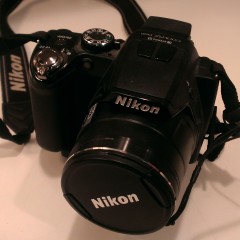A Boring Bar Grinding Jig
A quick little project to replace a jig I’ve been using for years.
Continue Reading…

You want videos, I got some woodworking & metalworking videos for you.
A quick little project to replace a jig I’ve been using for years.
I’ve been experimenting with rust bluing for a little while, but haven’t been able to achieve the results that I know are possible. After a decent amount of research I came to the conclusion that I was not removing the loose rust that forms during the bluing process properly, and that is why I was getting inferior results. To remedy the issue I purchased a carding wheel specifically designed for the task.
Upon receiving wheel, I determined i didn’t like the method most people used to mounted the wheel, so I sat down and designed an arbor that would allow me to mount the arbor safely and accurately on my wood lathe. The following video shows the process of making the arbor.
Reference:
A mill stop is one of those simple things that really comes in handy when you need to make multiple of the same part. I’ve used everything form the little tiny ones that clamp to the vise jaws, to Kant Twist clamps. While almost anything will work, sometimes you have a work piece that is difficult to work with do to its size, or shape. When such a situation presents itself, you need a stop that gives you multiple degrees of freedom with regards to positioning the stop relative to the work piece.
Another scenario that you can run into is the stop getting in the way of the operation you need to perform on the work piece. In this case you need to be able to remove the stop to perform the operation, but you also need to quickly and accurately remount the stop for the next work piece.
The stop in the video below, is my attempt to handle all of these scenarios with one simple design.
A video that I’ve made slowly over the last few months, that shows the making of a custom birdcage awl.
As I explain in the video, The lathe operations required to make the body of the dresser are more difficult than are probably needed, but it was a fun exercise in maintaining concentricity between features. The milling operations were strait forward and quick to complete. After initial testing I was pleasantly surprised to find that the dresser works even better than I originally anticipated. It yields a nice round wheel, as well as a face parallel to the front of the rest allowing grinding fixtures to be set-up quickly and accurately. It also does an exceptional job of opening up the wheel, thus allowing for a more aggressive cut to be taken while still producing very little heat.